Northern Ireland has changed in the last 100 years and for the better
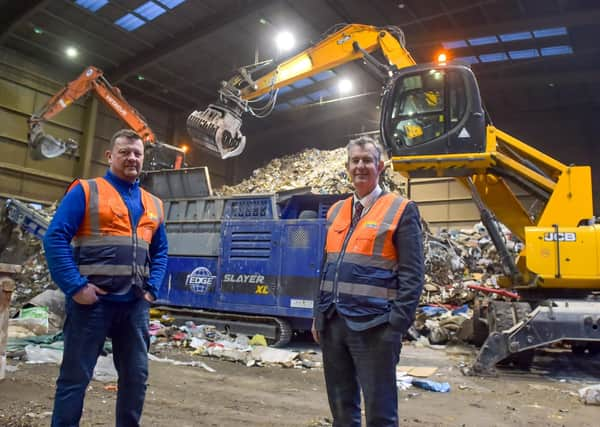

Northern Ireland has changed immeasurably in the last 100 years
Advances in technology, engineering, innovation, research and science have changed our economy at a lightning speed.
Advertisement
Advertisement
Against this shifting landscape, agriculture has also changed beyond recognition, both in terms of what we produce and how we produce it. Traditional methods have given way to ground-breaking and innovative solutions and the focus on animal welfare, traceability and the environment has never been greater.
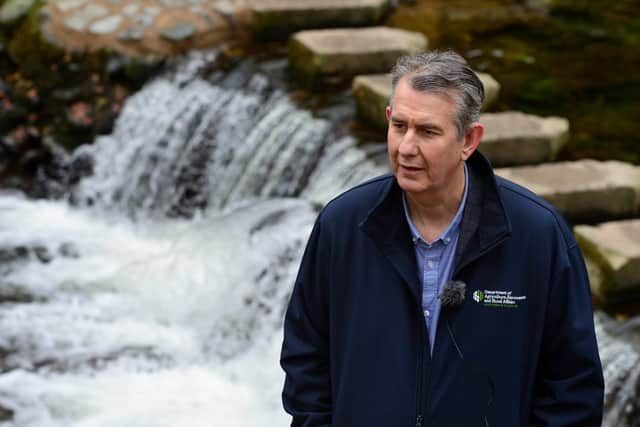

As we celebrate the centenary of Northern Ireland, it’s important to not only reflect on the last 100 years, but also plan for our future generations.
Northern Ireland’s agriculture and rural communities are the bedrock of our society - for many years, farming has been Northern Ireland’s biggest industry. Around 75% of Northern Ireland’s land is used for agriculture with the food supply chain sector as a whole employing over 100,000 people, generating £1.6 billion for our economy. Agriculture is a resilient and adaptable sector, which over the last 100 years, has faced many crises, challenges and changes.
Covid has of course been extremely challenging for the sector but farmers and the agri-food industry have stepped up to the mark and kept food on our tables – for that I would like to say thank you. And while farming has changed considerably in the last 100 years, it has still a key role to play in the future economic development of Northern Ireland. Our excellent animal welfare standards, high-quality produce, exceptional traceability and our environmentally-aware practices are the basis on which we will move forward. In fact, quite recently we began trading our meat with China and the USA, punching well above our weight in terms of international trading. Many more opportunities and markets like this exist for our sought after food and I’ve no doubt our sector will rise to the challenge and continue to represent us on a world stage over the next century.
Advertisement
Advertisement
In order to ensure our agri-food sector is secure in the long term and can compete on a global scale, we need a solid, educational foundation which fosters innovation, sustainability, the environment and business development at its core.
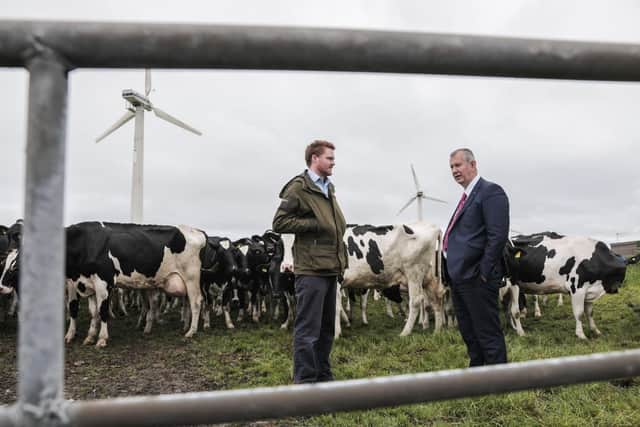

Northern Ireland’s College of Agriculture, Food and Rural Enterprise (CAFRE) has a key role in developing and delivering the education and knowledge transfer provision for the Northern Ireland food, farming, horticulture and equine industries and, some of its students no doubt progressing to be future industry leaders.
It is now time to invest in our young people, our agri-food sector and provide modern, well-designed facilities which will meet the needs of students, staff and industry during the next century. This week, I was delighted to announce a £75 million investment in the redevelopment of the CAFRE campuses at Greenmount and Loughry. This will underpin the future sustainable growth of the Northern Ireland agri-food industry.
This will help to sustain our sector for the next 100 years, which will no doubt bring with it, further change. The post-Covid world coupled with a sharp focus on climate change and biodiversity will certainly redefine how we produce and consume our food. The agriculture sector has always embraced change. It has modernised, adapted and found new ways of working that not only sustain our food production sector and our economy, but also protect and enhance our environment. Once again, I am in no doubt that the agri-food sector will rise to the challenges ahead.
Advertisement
Advertisement
During my time as minister, I’ve progressed a range of policies, consultations and decisions that I hope will benefit all the people of Northern Ireland, future generations and our planet. One of my first announcements as minister was a pledge to plant 18 million trees by 2030 and create 9,000 hectares of new woodland – so far we’ve planted around 670,000 trees to create 335 hectares of new sustainable woodland, which includes 254 hectares comprising of native tree species.
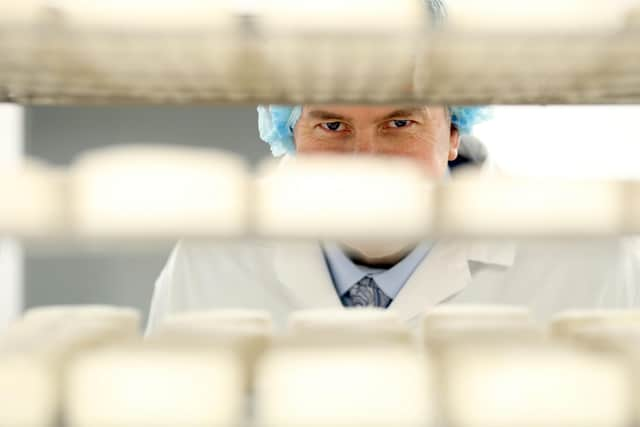

There is a clear need to take action to protect our planet and that is why I have launched significant discussions or consultations on a range of issues around agriculture, environment and science. The most significant area of progress has been my department’s multi-decade Green Growth programme, which it leads on, on behalf of the Executive. It aims to transform and grow the Northern Ireland green economy, protect our environment and reduce our carbon emissions.
The actions we take now, must be based on evidence and science. Independent experts in the Climate Change Committee’s assessment is that a Net Zero target covering all greenhouse gases cannot credibly be set for Northern Ireland at this time.
The analysis showed it was not feasible for a scenario for UK Net Zero in 2050 that sees Northern Ireland reaching Net Zero in the same year, due to its unique characteristics and make-up.
Advertisement
Advertisement
Instead they advised based on evidence, an ambitious but achievable target of at least an 82% reduction in net greenhouse gas emissions by 2050 as Northern Ireland’s fair share to UK Net Zero given a variety of many factors, including agriculture numbers which experts say if cut significantly would simply shift the level of emissions problem elsewhere, rather than reduce emissions globally.
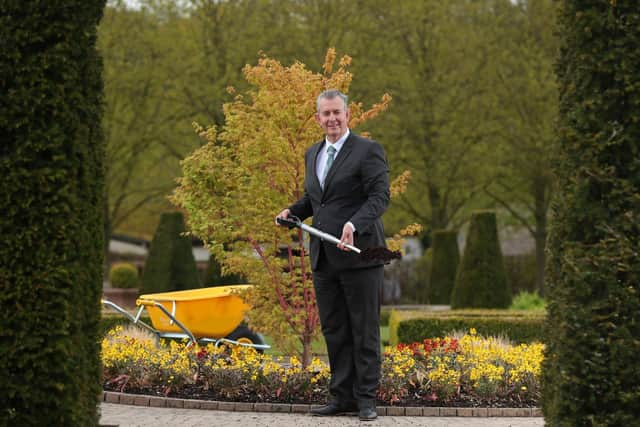

Meeting this target means we can contribute our fair share to UK Net Zero and UK’s commitment to the Paris Agreement. I will make sure that Northern Ireland plays its part in the wider effort.
Sustainable and achievable actions are vitally important to the health and well-being of every person in Northern Ireland and our planet – which we all know is under duress. Tackling climate change, will be the defining challenge of this generation and the next and we must rise to this challenge whilst recognising sustainable agriculture can be part of the solution and ensuring our agri-food sector can grow in a sustainable way.
There is no doubt that 2020 has been a difficult year but 2021 brings with it a sense of hope and an opportunity to celebrate the centenary of Northern Ireland, bringing people together.
Advertisement
Advertisement
In my role as minister, I am responsible for Northern Ireland’s agriculture, forests, fishing, environment, rural affairs, veterinary services and education – issues of such importance that our very future will be defined by them. We all have a part to play in shaping our future for the better.